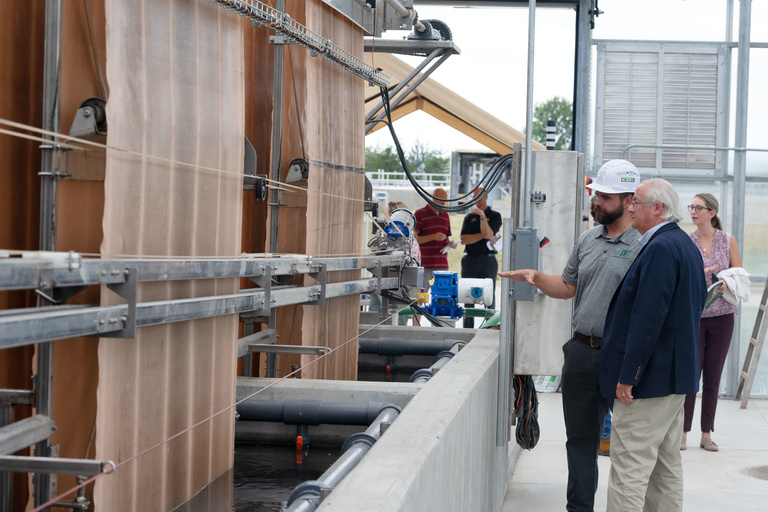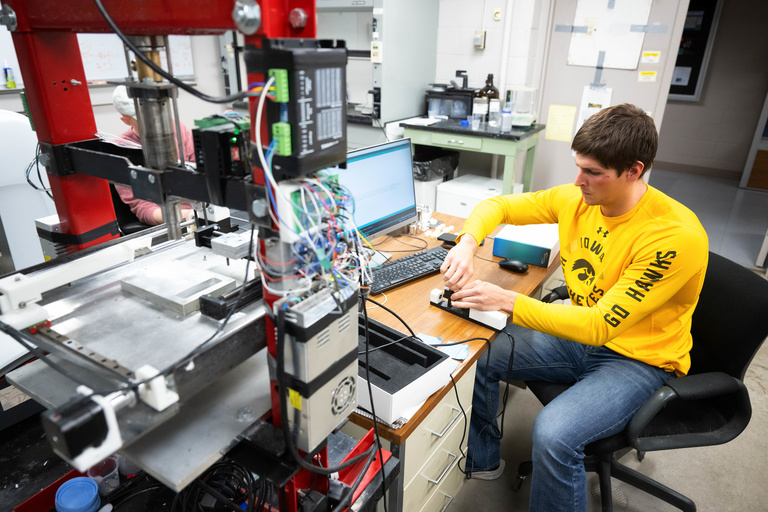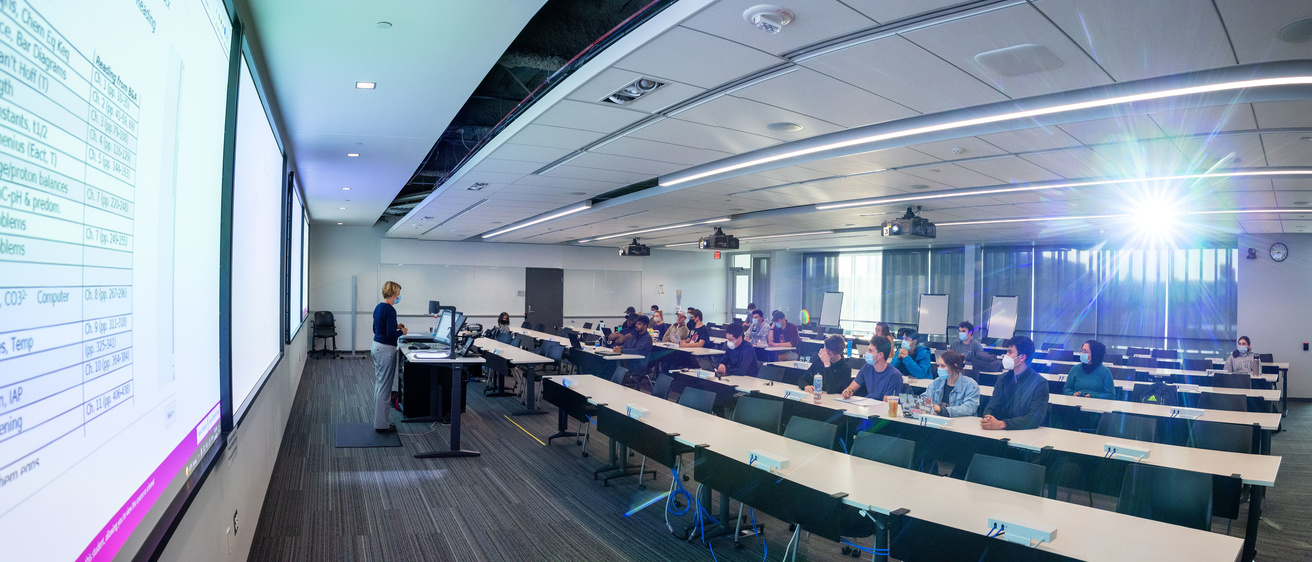Main navigation
About the program
The graduate program in Hydraulics and Water Resources at the University of Iowa prepares students for careers in hydraulics, hydrology, and water resources, by providing a strong theoretical and applied foundation, and a broad-based academic background, necessary for positions in engineering design, research, and academia. The program combines hydraulics, fluid mechanics, hydrology, and water resources, with elements from environmental engineering, meteorology, remote sensing and systems analysis, and related disciplines such as mathematics, statistics, electrical and computer science engineering, geology, and geographical information systems.
The Hydraulics and Water Resources curriculum is associated with IIHR—Hydroscience and Engineering, a world-renowned research institute, where senior staff members of the institute are professors in the program. IIHR offers unique curriculum opportunities in laboratory and field-scale experimentation, and in mathematical modeling with IIHR's high-speed computer facilities.
Most of the faculty members in the Hydraulics and Water Resources program are also part of the Iowa Flood Center, the only academic flood center in the nation. By training and educating a workforce knowledgeable in the flood-related sciences, the Iowa Flood Center provides students with the opportunity to work on improving flood monitoring and prediction capabilities, and on developing models for flood frequency estimation and real-time forecasting.
Admission Requirements
For consideration for financial support, we strongly encourage you to submit your application by January 15.
Decisions on admission to the graduate program, and offers of financial support, are made on a competitive basis. Factors considered include academic background and performance, letters of recommendation, work experience and professional training, and TOEFL scores (when applicable).
The TOEFL exam is required for admission for students whose native language is other than English or that do not have a degree from an English-speaking country. A minimum TOEFL score of 81 for the internet-based exam is required.
Students who do not have an undergraduate B.S. degree in civil & environmental engineering, but who have adequate training in mathematics or science, may be admitted for graduate study in the Hydraulics and Water Resources Program. However, certain undergraduate courses may need to be taken without graduate credit.
HWR Graduate Degree Requirements
The Hydraulics and Water Resources Program offers both masters and Ph.D. degrees.
The MS degree may be earned on either a thesis or a non-thesis basis. The thesis option requires a minimum of 30 hours of credit – 25 semester hours of course work plus 5 semester hours of thesis research credit. The non-thesis option requires a minimum of 31 semester hours of course work. Students seeking financial support should apply for the thesis option.
The Ph.D. degree requires 72 hours of credit beyond the basic undergraduate degree. This requires 43 semester hours or coursework plus 29 semester hours of thesis research credit. A minimum of one year of on-campus residency is required for the Ph.D.



